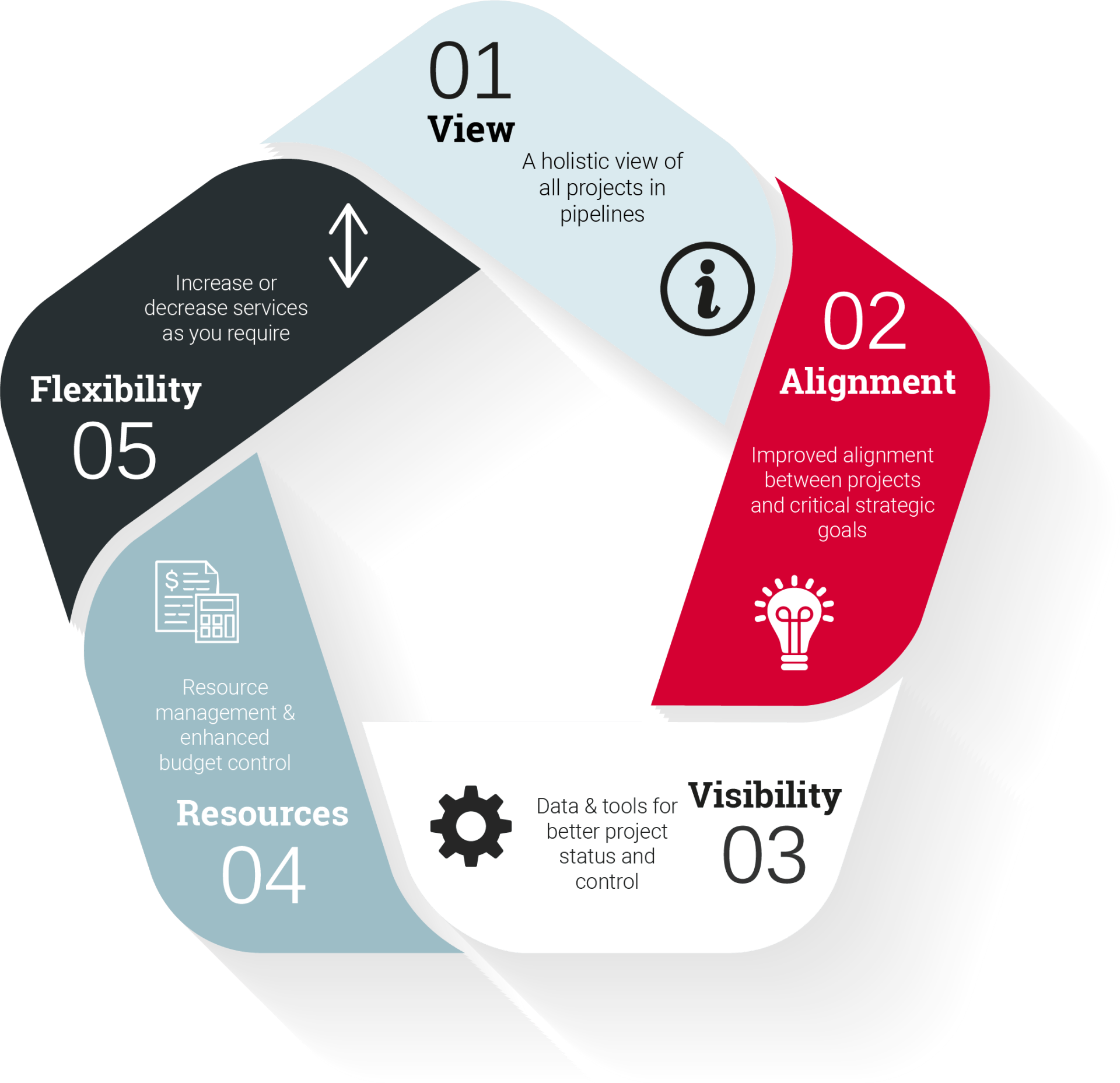PMaaS
Project Management as a Service
Agile and waterfall methodologies combined with years of expertise
PMaaS is a Cost-Effective solution
Use our specialists instead of an expensive in-house team
IN-HOUSE PROJECTS CAUSE STRAIN & RISK IN THESE AREAS:
- Visibility: Do you have a complete view of the status of all your projects?
- Alignment: Are your projects closely aligned with your high-level strategic goals?
- Delivery: Are you measuring your delivery to one agreed standard?
- Resources: Can you manage resources more efficiently?
Our Approach helps you Grow & Scale
- Our extensive project management experience provides best-in-class methodologies and an on-demand model
- We can build a local or remote capability to suit your culture and client needs
- Facilitates remote working resulting in cost savings
- Removes geo barriers to untapped best in class talent
- Our PMaaS capability ensures a bespoke PMO, delivering tangible benefit that’s flexible and scalable
- Our service is client specific and performance driven
Our model gives you a clear overview of all projects, helping to align them your strategic goals and providing means to share resources and cost-reduction opportunities.
Ready to talk?
Our PMaaS experts have years of experience and use agile and waterfall methodologies to significantly improve success rates.
Get in touch today to discuss how we can help.
"Cambridge MC supported the development and implementation of a ‘cookie-cutter’ network connectivity solution that would deliver a reliable and secure service and the best customer experience possible."
—Multinational oil & gas company
Industry insights


Jason Jennings
Managing Partner - Project Management
Our Project Management as a Service is run by Jason Jennings
Jason is an advisor to numerous organisations and has extensive senior executive experience in the information and communications technology industry. He is the Managing Partner for Digital Transformation and lead for Cambridge MC’s Project Management as a Service capability.
Jason is a highly experienced CIO with strong commercial, business transformation and team building skills. He has a proven track record in delivering complex technology solutions for large international organisations across multiple territories. With demonstrable experience in delivering significant cost saving and improved technology-to-business alignment, Jason specialises in transformation, programme and project management, contract negotiation, outsourcing and interim management.
Get in touch with our Consultants today
Our team can be your team
Our team of experts have multiple decades of experience across many different business environments and across various geographies.
We can build you a specialised team with the skillset and expertise required to meet the demands of your industry.
Our combination of expertise and an intelligent methodology is what realises tangible financial benefits for clients.
SPEAK TO THE TEAM
Our Project Management Experts
Martina Pavlaskova
Project Coordinator
Martina is a Process Specialist and works on a variety of complex projects around the world. Martina’s experience includes: the coordination of service delivery, mapping and documentation of processes, testing project architecture, mentoring and training, internal communications, and leadership.















